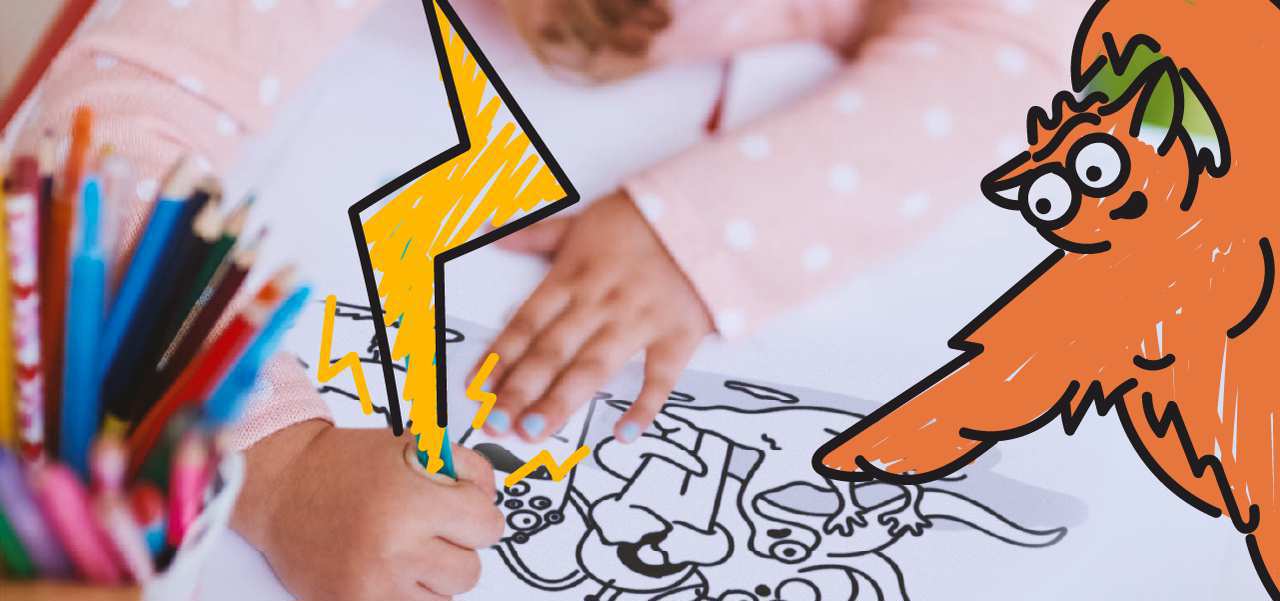
Tantrums, bedwetting, clinginess and irritability can all be expected from children during this time of heightened stress, explains children’s behaviour expert Julia Challenor.
‘For the under-fives who have less developed communication skills, times of stress and unrest are very frightening. They can’t say to their parents that they feel worried or nervous, because they can’t yet articulate what that means. So their feelings come out in their behaviours instead.’
So if your little one has been climbing into your bed at night, is suddenly melting down over the colour of their drink bottle, or starts talking in a baby voice – this is why.
‘For a child, their way of telling us that something is wrong can manifest as regression. So something that they’ve already mastered suddenly feels too hard, or out of their reach.’
Has your little one been asking for help with things that they can normally manage themselves, like buttoning their pyjamas or getting themselves a drink? This can be their way of asking for reassurance.
Connection is key
Julia explains that the number one way to overcome regression in children is through love and connection. ‘Get down on their level, let them know that they are safe and that you are there for them,’ says Julia.
Let them have their moment, comfort them and suggest a way to move forward together.
If they’re old enough to understand the Coronavirus situation, or they seem concerned about it, it’s fine to bring it up with them. You can use resources like the Toddle book The Boogers Are Coming to speak to them in a language that they understand.
Finding comfort in routine
‘Children love routine, it makes them feel safe,’ explains Julia. ‘All of a sudden that routine has gone out the window. Their days have been turned upside down. There’s no grandma coming to visit, there are no playdates, there are no park trips. This is very unsettling for children.’
Try putting some new rituals in place so that children know what’s going to happen. That might mean sitting down as a family to your morning porridge, or taking a walk around the neighbourhood after lunch, or working on some colouring in together before dinner.
Try to work out what they really need
‘Try to see their tears or behaviour as a form of communication,’ suggests Julia.
‘Rather than getting hung up on what they’re upset about, try to find a way to dig deeper about the real issues,’ Julia says.
So you might say ‘I hear that you’re talking in a baby voice, do you need a cuddle right now?’ or ‘I can see that you’re struggling with the blocks, do you want some help or a hug?’
Feeling secure and connected to you will help to reduce the fight or flight response in your child.
Keep a level head
‘This is not the time to be coming down on the children like a ton of bricks because they’re “misbehaving” or being difficult,’ says Julia.
‘It’s important to remember that you are the adult and your child needs you to be their rock right now,’ Julia explains.
So if your child is wailing because they can’t pick up the blocks that they tipped out on the floor, remember that this behaviour is not about the blocks. Find a way to turn the job into a game that you do together, using it as a way to connect.
Finally, Julia offers some words of wisdom for parents that are tearing their hair out right now.
‘They won’t remember the virus in years to come,’ she begins. ‘They’ll remember how their household felt.’